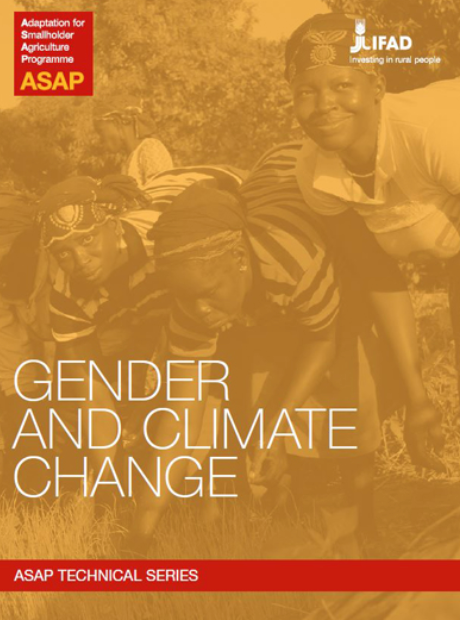Back to Library
ASAP Technical Series: Gender and Climate Change

Published by:
Online Location
https://www.ifad.org/en/web/knowledge/-/asap-technical-series-gender-and-climate-change?p_l_back_url=%2Fen%2Fweb%2Fknowledge%2Fpublications
Publication date
01/11/2022
Language:
English
Type of Publication:
Guidelines & Learning resources
Focus Region:
Global
Focus Topic:
Gender / Youth / Social Inclusion
Author
IFAD
Organization
International Fund for Agricultural Development
The good practices and lessons learned in IFAD’s Adaptation for Smallholder Agriculture Programme (ASAP) contribute to the state of knowledge of what works and what needs to change in integrating gender dimensions into climate action.
IFAD’s support of gender-transformative approaches, that tackle root causes of gender inequality, is an important strategy to empower women and engage men as agents of change in tackling climate change impacts. Communication about these experiences is also an important input to the UNFCCC gender action plan.
This paper has three specific objectives:
- to present the results of ASAP performance in promoting Gender Equality and Women’s Empowerment (GEWE);
- to determine whether gender-responsive approaches and interventions have been successfully implemented; and
- to present examples of good practice and lessons learned in mainstreaming gender within ASAP.